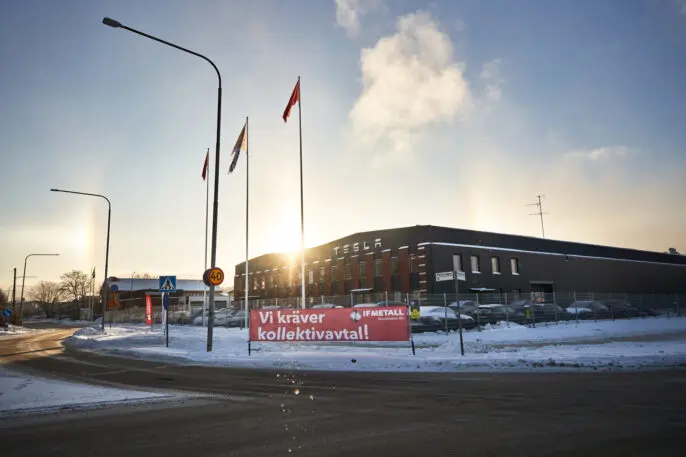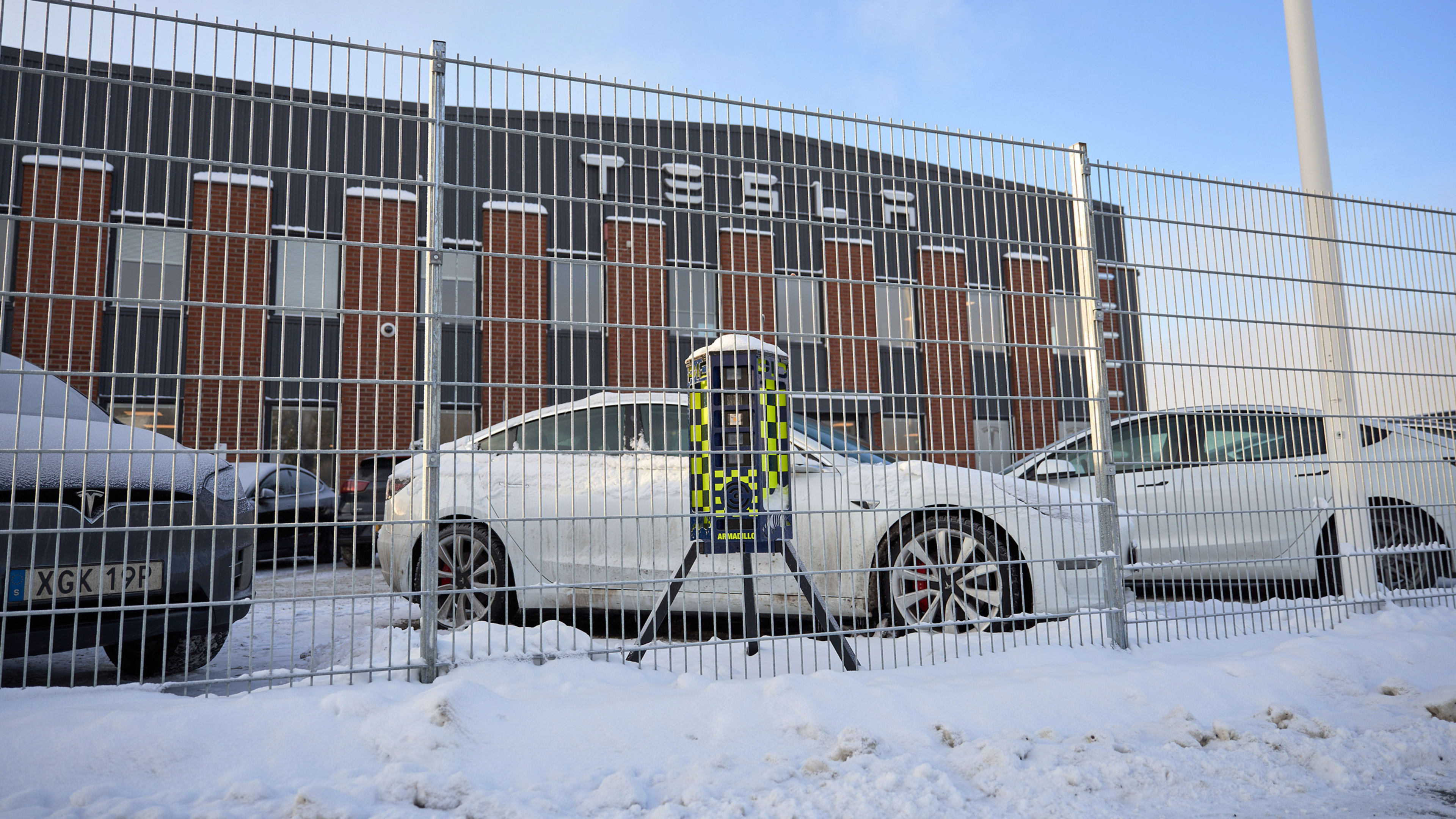At the end of October, mechanics at several Tesla-owned repair shops in Sweden walked off the jobs, setting off a strike that has since garnered support from unions across the country. Now, that labor action is crossing borders: Denmark’s largest union, 3F, said on Tuesday that it supports those Swedish mechanics, and that it could launch a sympathy strike within a few weeks, in which its workers will not transport or unload any Tesla vehicles heading to Sweden.
Though Tesla has no manufacturing plants in Sweden, it has service centers in seven cities and dealerships in nine cities. Other jobs, like dockworkers who unload shipments of Teslas at ports across the country, support the automaker’s presence in the country. Teslas are also popular with Swedish consumers; its Model Y has been the bestselling vehicle there this year.
Unions play a big part in the Swedish workforce—nearly 70% of Swedish employees are union members, and about 88% are covered by collective bargaining agreements. (The right to strike is even in the Swedish constitution.) Tesla workers, however, aren’t covered by any collective agreement—which is what they’re striking to achieve. (Though the mechanics are represented by a union, as most trade workers there are; in Sweden, employers aren’t allowed to prevent a worker from joining a trade union.) Mechanics at Tesla repair shops have been demanding that the car company talk about adopting a collective bargaining agreement for years. Workers went on strike beginning October 27.

“This conflict is about wages, pensions, and insurance for our members who work at Tesla,” said Marie Nilsson, union president of IF Metall, the trade union that represents Tesla mechanics, in a statement. “But fundamentally, it is also about standing up for the entire Swedish labor market model. In Sweden, it is unions and employers who together agree on wages and working conditions in collective agreement negotiations.”
Other Swedish workers have since joined the effort. What began with 130 mechanics striking at Tesla shops has since spread to Swedish dockworkers who refused to unload Teslas from cargo ships, janitors refusing to clean Tesla showrooms, electricians, and even postal employees, who in late November began refusing to deliver mail to Tesla facilities. That included license plates for Tesla cars, which prompted the automaker to sue the Swedish Transport Agency.
Responding to a tweet about how Tesla cars in Sweden weren’t getting new license plates, preventing them from being put into service, Tesla owner Elon Musk called the labor action “insane.” Musk has long criticized unions, and Tesla has been hostile to organizing; the car maker has fought union efforts, including illegally firing employees involved in unionizing and even threatening workers’ stock options if they organized. In the U.S., the United Auto Workers union is hoping to organize at Tesla plants following its recent successful strike actions.
Organizing any union in the U.S. is always a challenge, thanks to weak labor laws (only about 6% of private sectors here are unionized). But across Europe, it can be easier for workers to organize, especially through a practice called sectoral bargaining, where workers don’t just unionize one company, but fight for better conditions for workers in an entire industry. In Sweden, for example, trade unions and employers determine work conditions for each sector together—but Tesla has refused to do so.
Across Europe, workers also have the option to partake in sympathy strikes—a major labor difference from the U.S., says Art Wheaton, director of labor studies at Cornell University’s School of Industrial and Labor Relations. In the U.S., if Tesla workers went on strike, other unions—like, say, suppliers who make seats for Tesla cars—wouldn’t be able to go on strike in support. Europe, though, does allow sympathy strikes. “Elon Musk is finding out that doing business around the world is different,” he says.
This puts immense pressure on Tesla as a company. Though the auto market is smaller in Sweden, the share of electric vehicle sales is larger—around 32% of cars sold in Sweden are electric, versus about 9% in the U.S. “The strike isn’t just in some who-cares market,” Wheaton says. “It’s a market where Tesla is absolutely losing some significant sales if they can’t move any of their product.”
Swedish workers reached out to the Danish labor union for support after the Swedish Transport Association learned that cars headed to Sweden were being unloaded in Denmark (because Swedish dock workers had already joined the effort). The association’s chairman contacted 3F Transport on December 1 to see if they would do a sympathy strike. 3F said Danish dockworkers will start to strike two weeks from December 5 unless Tesla signs a collective agreement. That means port workers won’t load or unload Tesla cars, and drivers won’t transport these cars going through Denmark into Sweden. (It’s unclear how many transport workers there are specifically, but 3F has more than 323,000 members in total.)
“It is not just the big companies that are global. So is the trade union movement,” Jan Villadsen, chairman of 3F Transport, said, according to 3F’s trade magazine. “We are in solidarity with our colleagues, regardless of where they are in the world, so when we get a request from Swedish IF Metall, we naturally support it.”
Recognize your brand’s excellence by applying to this year’s Brands That Matter Awards before the early-rate deadline, May 3.
